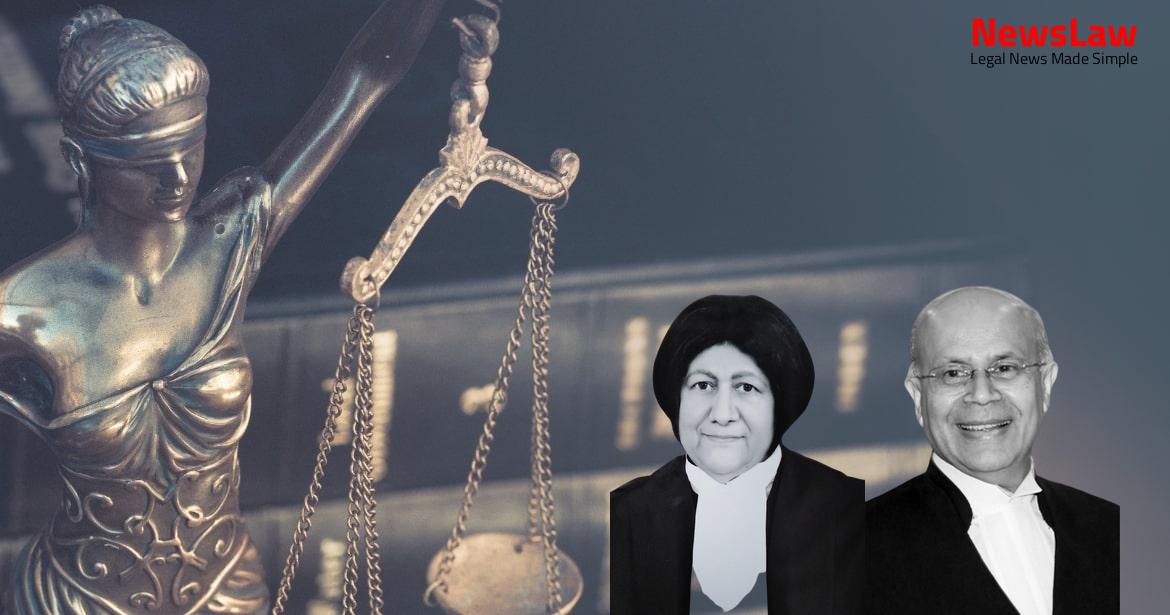A significant ruling by the Supreme Court of India has led to the quashing of the detention order in the case involving Appisseril Kochu Mohammed Shaji. The judgment emphasized the critical need for prompt consideration of detenu representations and the provision of all relevant materials for effective representation, as guaranteed under Article 22(5) of the Constitution. The decision also highlighted the necessity for detention orders to contain primary facts and not just evidential details. The case underscores the importance of upholding individual freedoms and protecting personal liberties through due process.
Facts
- The appellant, wife of Appisseril Kochu Mohammed Shaji (Shaji A.K.), filed a habeas corpus petition for the production of the detenu detained under COFEPOSA Act, 1974.
- The Division Bench of the High Court of Kerala at Ernakulam dismissed the appellant’s petition on 4 March 2024.
- The appellant appealed to the Supreme Court against the High Court’s judgement.
- The Supreme Court allowed the appeal on 31 July 2024, quashing the High Court’s order and the detention order dated 31 August 2023.
- The Central Government confirmed the detenu’s detention on 28 November 2023, directing detention for one year from 2 September 2023.
- The detention order dated 31 August 2023 was passed under Section 3(1) of the COFEPOSA to prevent the detenu from acting prejudicial to foreign exchange.
- The detenu was taken into custody on 2 September 2023.
- The grounds of detention included 12 points based on various materials.
- Materials relied upon by the Detaining Authority: Statements of detenu, statement of Shri Suresh Babu, WhatsApp chats, voice calls, images from detenu’s mobile phone, and statements of Ms. Preetha Pradeep.
- The detenu made representations to the Authorities and approached the Kerala High Court through a habeas corpus petition.
- The High Court rejected the petition, leading to the current appeal for release of the detenu.
Also Read: Environmental Impact Assessment of GPP Operations in Pune: A Supreme Court Verdict
Arguments
- Shri Gaurav Aggarwal argues that the detention order is unsustainable as the Detaining Authority did not properly apply their mind to the material.
- He points out the importance of providing all relevant materials to the detenu for effective representation as guaranteed under Article 22(5) of the Constitution of India.
- Shri Gaurav Aggarwal also mentions the necessity of the grounds of detention to contain primary facts and not just evidential details.
- He argues that the non-supply of vital statements to the detenu affected their rights and challenges the High Court’s decision on this matter.
- The delay in transmitting detenu’s representations and the lack of proper consideration by the Central Government are highlighted as additional grounds for setting aside the detention order.
- Shri Aggarwal disagrees with the High Court’s view that the Detaining Authority could have reached the same conclusion even without certain statements.
- The delay in deciding the representation by the Detaining Authority and the Central Government is addressed.
- Representations made by the detenu on 27 September 2023 were claimed to not have been received by the Detaining Authority and the Central Government.
- After this issue was noticed by the Court, records were called from the Jail Authorities.
- The representations were decided on 11 June 2024 and 12 June 2024 by the Detaining Authority and Central Government respectively.
- The argument made is that there was no delay in deciding the representations by the Detaining Authority or the Central Government.
Also Read: High Court Misdirects in Proviso to Section 45 PMLA Case: Supreme Court Verdict
Analysis
- The representation dated February 23, 1980, made by the detenu through jail authorities reached the detaining authority on March 27, 1980, showing a time-lag of 1 month and 5 days.
- The delay in communicating the representation from the jail to the detaining authority demonstrates gross negligence and extreme callousness.
- The detaining authority must decide representations with utmost expedition in matters concerning personal liberty.
- The delay in deciding representations can result in denial of valuable rights guaranteed under the Constitution.
- Failure to transmit representations promptly can lead to invalidation of detention orders.
- It is the duty of the transmitting authorities to ensure representations are sent promptly and considered expeditiously.
- Failure to supply certain documents relied on by the Detaining Authority can affect the detenu’s right to make an effective representation under Article 22(5) of the Constitution.
- Previous court cases have emphasized the importance of promptly considering a detenu’s representation for protecting personal liberty and individual freedom.
- It is crucial to supply copies of documents relied on by the Detaining Authority to enable the detenu to make an effective representation.
- The delay in transmitting or dealing with a detenu’s representation can invalidate the detention order and infringe upon the constitutional mandate of Article 22(5).
- Persons resident in India are prohibited from entering into any financial transaction in India as consideration for the acquisition, creation, or transfer of any asset outside India by any person.
- Financial transaction includes making payments to, or receiving payments for, on behalf of any person, as well as drawing, issuing, or negotiating bills of exchange or promissory notes, transferring securities, or acknowledging debts.
- It is not allowed for a person resident in India to acquire, hold, own, possess, or transfer any foreign exchange or foreign security, unless otherwise provided for in the Act.
- If a person in India receives a payment on behalf of a person outside India without a corresponding inward remittance from outside India, it is considered as receiving payment otherwise than through an authorized person.
- Dealing in or transferring foreign exchange or foreign security to unauthorized persons is prohibited, unless with permission from the Reserve Bank.
- Makings payments to or for the credit of any person resident outside India in any manner, or receiving such payments, is also restricted except through authorized persons or with special permission.
- Casual, callous and negligent approach of the Prison Authorities led to a delay in the detenu’s representation reaching the Detaining Authority and Central Government.
- Representation had a delay of about 9 months in being decided.
- There was a further delay of 27/20 days by the Central Government and Detaining Authority in deciding the representation after it was called from the Prison Authorities.
- Detention order is liable to be quashed and set aside due to the delays in the decision-making process.
Also Read: Confirmation Dispute: Tripura University vs. Dr. Praveen Kumar Mishra
Decision
- The appeal is allowed.
- The judgment and order of the High Court dated 4 March 2024 in Writ Petition (Criminal) No 1271 of 2023 is quashed and set aside.
- The order dated 31 August 2023 passed by the Joint Secretary (COFEPOSA) to the Government of India directing the detention of the detenu is quashed and set aside.
- The order dated 28 November 2023 passed by the Under Secretary, Government of India confirming the detention order of the detenu – Appisseril Kochu Mohammed Shaji (Shaji A.K.) is quashed and set aside.
- The detenu is directed to be released forthwith, if not required in any other case.
Case Title: JASEELA SHAJI Vs. THE UNION OF INDIA (2024 INSC 683)
Case Number: Crl.A. No.-003083-003083 – 2024



